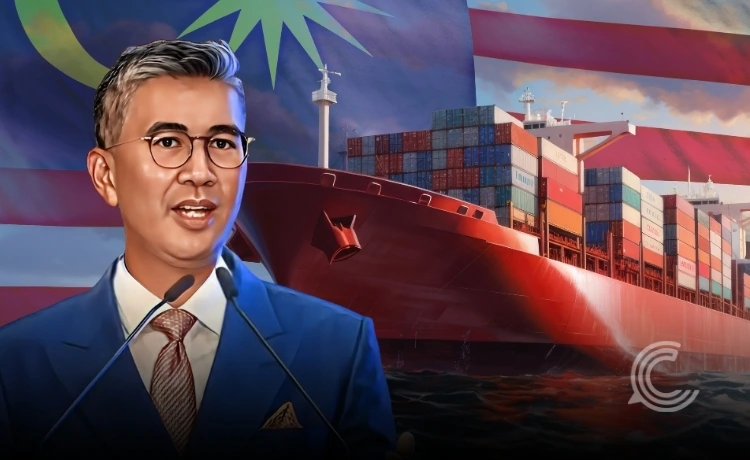Minister Confirms Malaysia Keeps Rare Earths Ban Despite US Deal

Key Highlights–
- Malaysia reaffirms ban on raw rare earths exports to protect domestic resources.
- This move comes a day after the US and Japan signed a rare-earths pact to counter China.
- Minister Tengku Zafrul says Malaysia aims to build local processing capacity, not export raw materials.
Malaysia will maintain its ban on exporting raw rare earths, Trade Minister Tengku Zafrul Aziz confirmed on Wednesday, despite signing a critical minerals agreement with the United States earlier this week.
Malaysia Stands Firm on Rare Earths Exports Policy
Speaking in parliament, Zafrul said the government would not allow “cheap raw materials” to be shipped abroad, insisting that Malaysia’s strategy is to add value through domestic processing and technology partnerships rather than rely on raw exports.
“We no longer want to be a country that only digs and ships out cheap raw materials like in the past,” Zafrul said. “Our policy is not to prevent trade forever, but to prevent the export of unprocessed raw materials so that value is added to Malaysia.”
According to Reuters, Malaysia holds an estimated 16.1 million metric tons of rare earth deposits, making it one of the region’s largest untapped reserves. These materials are essential for manufacturing electric vehicles, semiconductors, wind turbines, and advanced defense systems.
However, Malaysia still lacks large-scale technology and refining infrastructure, an area where it has sought foreign investment and technical collaboration. Zafrul dismissed speculation that the US trade deal could force Malaysia to ease export restrictions, calling such claims “misguided and politically motivated.”
US and Japan Move to Diversify Supply Chains
Malaysia’s reaffirmation comes just a day after the United States and Japan signed a rare earths framework agreement in Tokyo, aimed at breaking China’s global monopoly over critical minerals.
The pact, signed by US President Donald Trump and Japanese Prime Minister Sanae Takaichi, focuses on creating mine-to-market supply chains, joint investments, and shared stockpiling strategies to ensure resilient, diversified, and transparent markets.
Notably, Malaysia’s announcement comes at a time when the global focus on critical minerals is increasingly shaping geopolitical alliances. Meanwhile, Washington and Tokyo push for supply chain independence, Malaysia’s decision suggests it wants to play a measured, resource-sovereign role. Benefiting from Western partnerships while preserving domestic control over extraction and value creation.
Balancing Sovereignty and Cooperation
The US–Malaysia critical minerals deal, signed during Trump’s recent visit to Kuala Lumpur, was designed to strengthen cooperation in supply chain diversification. A joint statement between the two countries indicated that Malaysia would refrain from imposing export quotas or bans on processed rare earth elements, but Zafrul clarified that this does not apply to unprocessed raw minerals.
“We are open to technology transfer, investment, and industrial cooperation,” he said. “But we will not repeat the mistakes of the past, selling raw materials cheaply while others profit from processing.”
Reports earlier this month indicated that Khazanah Nasional, Malaysia’s sovereign wealth fund, was exploring a partnership with a Chinese rare-earth refinery to build processing capacity locally. Such projects could place Malaysia at the crossroads of competing US–China supply chain strategies.
Global Stakes in the Rare Earths Race
China currently processes over 90% of the world’s rare-earths refining capacity, giving it immense leverage in global high-tech manufacturing. In recent years, Beijing has imposed export curbs and licensing requirements, prompting nations like the US, Japan, and Australia to invest in alternative refining hubs.
Read More | China Tightens Rare Earth Export Curbs Over Military and Chip Tech
Analysts say Malaysia’s decision to retain its rare earths exports ban highlights a broader trend of resource nationalism among countries rich in critical minerals. “Kuala Lumpur’s move is strategic, it aims to capture more value domestically while still engaging with both Washington and Beijing,” said a Southeast Asia trade analyst quoted by Nikkei Asia.
As the US–Japan pact gains traction and Malaysia strengthens local processing ambitions, experts expect a realignment in the global rare earths exports landscape, shifting power away from China’s dominance and toward a network of regional production centers.



